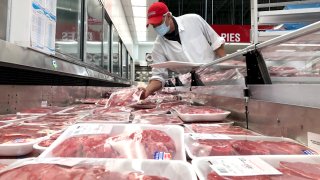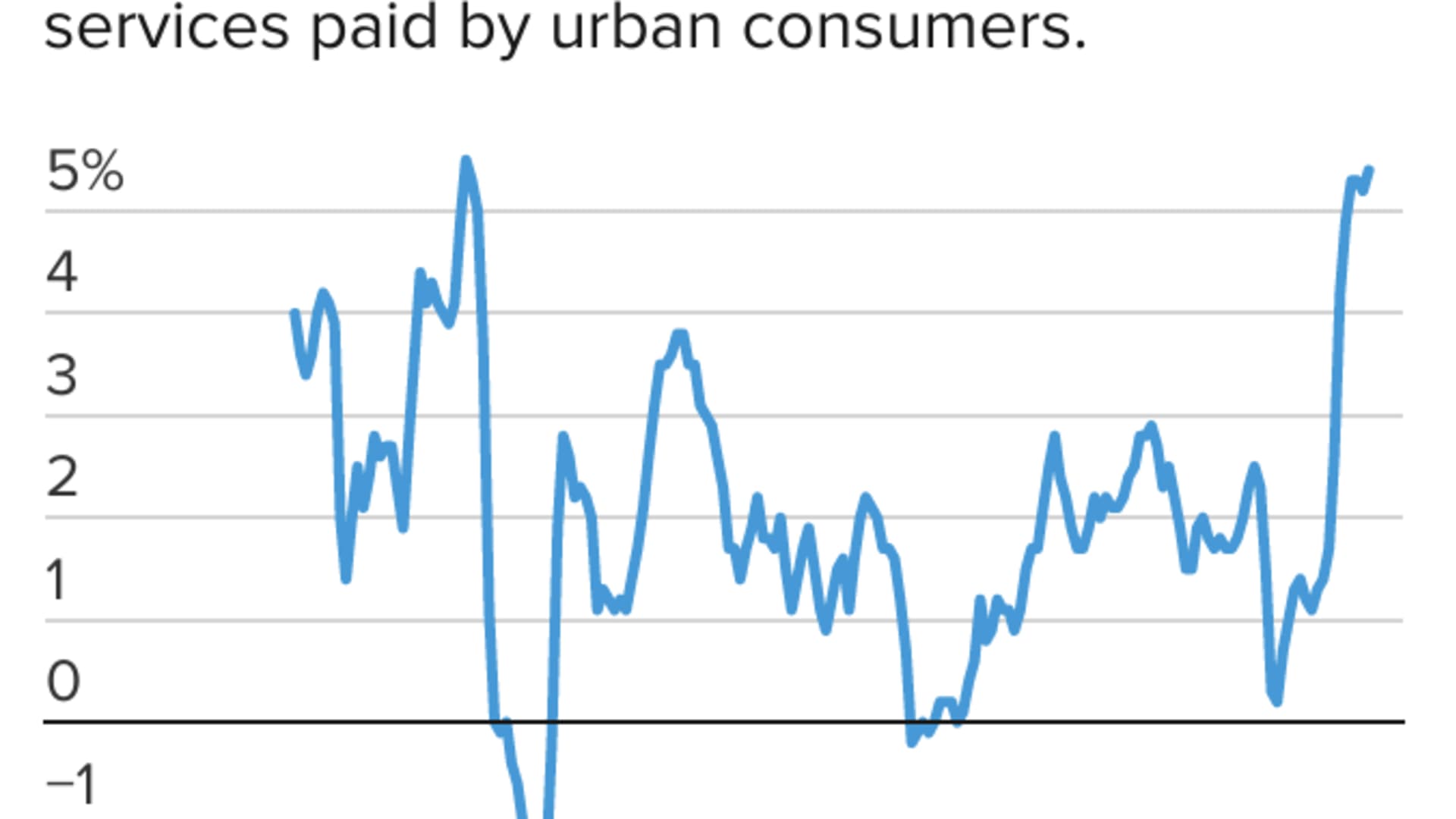
- Economists expect the consumer price index rose 0.6% in October and 5.9% on a year-over-year basis, the most since 1990.
- The CPI is hotter than economists initially expected it would be, and they now see it staying elevated into next year.
- "What we're seeing is there's this second wave of inflation that appears more broad based, and it's also backed up with a sharp increase in wages," said one economist.
The consumer price index is expected to have risen nearly 6% in October, the most in three decades. Inflation could remain elevated into early next year, as rents and other costs continue to increase.
The Labor Department will report the latest CPI reading Wednesday at 8:30 a.m. ET. Economists polled by Dow Jones are expecting a jump of 0.6%, or a year-over-year gain of 5.9%. On a core basis, excluding food and energy, economists expect a gain of 0.4% or 4.3% year over year.
"There's a risk it could be even higher," Grant Thornton chief economist Diane Swonk said.
Get a weekly recap of the latest San Francisco Bay Area housing news. Sign up for NBC Bay Area’s Housing Deconstructed newsletter.
"We've got some unusual distortions with used car prices, airfares going up and hotel room rates rising," she added. "You could get some surge prices in services, at the same time you had a snapback in used car prices and new car prices also went up because demand went up with the flooding" from summer hurricanes.
Used car prices were a culprit behind rising inflation in the spring. They fell down in the summer and declined last month, but they could begin to rise again, Swonk said.
If the CPI reaches 5.9%, it would be the biggest year-over-year gain since December 1990. Consumer prices were 5.4% in September year over year.
Money Report
Rising prices that stick
The spike in consumer prices is hotter and more enduring than many economists, and the Federal Reserve, had initially expected. Inflation has become the top concern of stock market strategists, who say much higher or stickier inflation could lead the Fed to speed up the wind down of its bond-buying program and move on to raise interest rates sooner than anticipated.
"The main theme over the past few months has been that the inflation pressures seem to be broadening out," Amherst Pierpont chief economist Stephen Stanley said. "The big increases in the spring were driven by just a handful of categories."
"Those categories started to reverse, but we're starting to get high readings because a lot of things are turning higher, whether it's shelter costs, or other service categories, like recreation," he added.
Stanley expects a 0.7% gain in headline CPI and a 0.4% increase in core prices.
Shelter is about a third of CPI, and it has already been rising. Rent was up 2.4% year over year in September, and the owners' equivalent rose 2.9%.
"They're reaccelerating and you have a lot of tailwinds," Swonk said. National median rents are up 16.4% since the beginning of the year, according to Apartment List.

Another area where Swonk expects to see an uptick is in medical costs.
"Medical costs have yet to pickup and resumptions of elective surgeries and a backlog of routine exams will push them up next year as well," she said.
Swonk expects inflation to crest in the first quarter, and then the year-over-year comparisons will be easier starting in March. "Year-over-year comparisons start to come down and we'll start to see a deceleration," she said, adding that the amount it slows depends on rents and medical costs.
Much of the inflationary pressures have been blamed on supply chain issues and the rising cost of commodities, particularly oil.
Stanley said he does not expect the high year-over-year gains in CPI to subside until comparisons are easier in the spring.
"What has the Fed concerned is they thought we'd get three or four months where used car prices and airfares were shooting up and then we'd go back to normal," Stanley said. "What we're seeing is there's this second wave of inflation that appears more broad-based and it's also backed up with a sharp increase in wages."
"When these commodities prices rise sharply like this, they usually reverse once the rising force dissipates," he added. "But when wages accelerate, wages are not going to reverse, but the pace of wages might normalize."
Stanley said inflation has proven more persistent than he had initially expected. One example he cited was the new car market: Manufacturers have had difficulty building enough cars because of parts, particularly semiconductors.
"When you went back and heard what the automakers were saying, we were always two or three months away from trying to unwind the chip problem and here we are a year later, it's just as bad as it was at any point," he said. "Nobody expected the magnitude. You had the easiest fiscal policy ever in response to Covid, and you had the easiest monetary policy ever."






